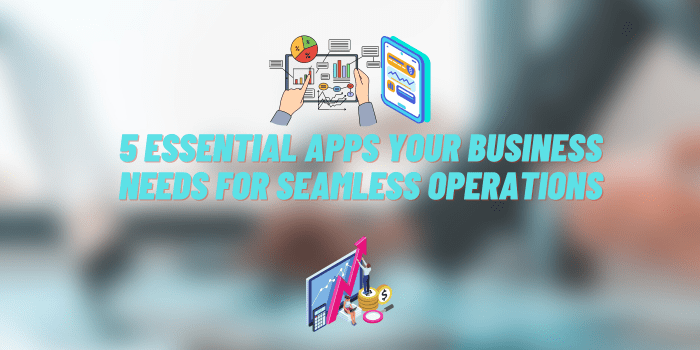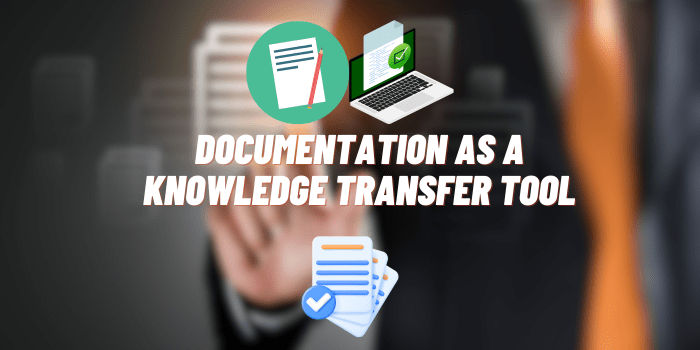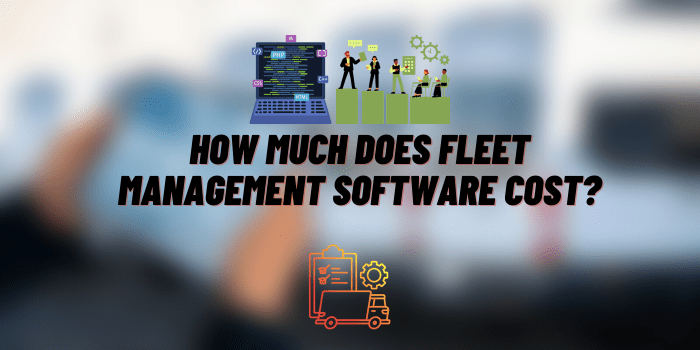5 Essential Apps Your Business Needs for Seamless Operations
Picture this: a world where every aspect of your business is meticulously fine-tuned, where complex tasks are simplified, and where your connection with customers transcends the conventional. This is the reality that awaits those who embrace the potential of apps purposefully designed to empower businesses like yours.
Gone are the days of wrestling with manual processes, puzzling over inventory management, and striving to establish an impactful online presence. The transformative force of game-changing apps will revolutionize how you envision and steer your enterprise. The journey to business excellence begins now. Are you ready to embark on this odyssey?
On the Benefits of Custom Apps

While off-the-shelf applications may offer general functionality, they often fall short of meeting the unique and intricate requirements of individual businesses. Custom apps, on the other hand, open the gateway to a multitude of benefits. Let’s explore some of the most significant ones:
- Personalization
Custom apps are meticulously crafted to address the specific needs and goals of your business. They are not bound by the limitations of pre-packaged software, offering tailor-made solutions that align perfectly with your workflow and operational demands. With custom apps, you have the flexibility to integrate the best shipping software available, ensuring that your logistics and supply chain management are seamlessly incorporated into your tailored solutions, optimizing your business processes even further.
- Enhanced security
In an era where data breaches and cyber threats loom large, custom apps afford an added layer of security. With dedicated security measures built into the app’s architecture, you can safeguard sensitive business data and customer information effectively.
- Seamless integration
By turning to quality cross-platform app development services, you will receive solutions that integrate with your existing software and systems. This synergy ensures a smooth flow of data and processes.
- Scalability
As your business grows, so should your applications. Custom software can be designed with scalability in mind, accommodating expanding user bases and evolving business requirements. Plus, it offers the flexibility to adapt to future changes and challenges, ensuring long-term viability.
- Cost-effectiveness
While custom app development may require an initial investment, the long-term benefits outweigh the costs. As the app precisely caters to your business processes, it eliminates the need for unnecessary features and reduces ongoing maintenance expenses.
5 Apps Your Business Needs In 2023

#1 Customer Engagement
A customer engagement app allows customers to access essential information about your products or services, view account details, and even place orders. Plus, features like live chat or customer support can provide immediate assistance.
Example: By incorporating incentive marketing strategies, a coffee shop chain can implement a customer engagement app to enhance its patrons’ experience and build brand loyalty. Through the app, customers can place mobile orders for their favorite beverages and pastries, saving time during busy periods. The app’s loyalty program rewards customers with points for each purchase, which can be redeemed for free drinks or discounts. Plus, the app can send personalized offers and promotions based on customers’ preferences and previous orders, encouraging repeat visits and increased customer retention.
#2 Task and Project Management
A task and project management app can help streamline internal processes. It allows teams to set deadlines and monitor progress. With features like task assignments, real-time updates, and progress tracking, this app ensures that projects are completed on time and within budget.
Example: In a software development environment, a task and project management app is essential to keep complex projects organized. Developers can collaborate on coding tasks, leave comments, and request code reviews within the app, ensuring smooth and efficient development processes. With built-in bug tracking and issue management features, the software helps the team identify and resolve defects promptly, ensuring a bug-free final product. Besides, the app’s integration with version control systems enables seamless code repository management and simplifies deployment.
#3 Mobile Payments
In an increasingly cashless society, offering a mobile payment app is simply good tone. Whether you have a brick-and-mortar store or an online shop, providing customers with a secure and convenient mobile payment option is a must. Integration with various payment gateways and the ability to store payment information securely can also enhance the shopping experience. Moreover, enabling customers to send money online instantly through your app can further streamline transactions and boost customer satisfaction.
Example: A food delivery service can use a mobile payment app to offer customers a seamless and convenient payment experience. When placing an order through the app, customers can securely store their payment information, allowing for one-tap payments for future orders. The app can integrate with various payment gateways, enabling customers to use credit cards, mobile wallets, or even cash-on-delivery options. With real-time order tracking and updates, customers can stay informed about their delivery status, while the mobile payment app ensures a quick and hassle-free payment upon delivery.
#4 Social Media Management

A social media management app allows businesses to schedule posts, track performance metrics, and respond to comments or messages across multiple platforms. With the ability to analyze data and understand audience preferences, your business can craft compelling content that resonates with your target market.
Example: A fashion retailer can use a social media management app to curate a captivating online brand image and engage with its fashion-forward audience. The app enables the retailer to monitor social media mentions, respond to customer inquiries and comments promptly, and foster genuine connections with followers. By using social listening features, the retailer can identify trends, monitor competitors, and gain insights into customer preferences. The in-built analytics tools help track the success of marketing campaigns and identify top-performing content.
#5 Inventory Management
For businesses dealing with physical products, efficient inventory management is crucial to avoid stockouts or overstocking. An inventory management app can help keep track of stock levels, automatically update inventory counts, and generate alerts when it’s time to reorder.
Example: A manufacturing company can benefit from an inventory management app to oversee its raw materials, work-in-progress, and finished goods inventory. The app provides real-time visibility into inventory levels at each stage of production, allowing managers to plan production schedules. With inventory tracking and barcode scanning features, the app simplifies the process of receiving and dispatching materials, reducing the chances of errors or delays. Plus, it can help manage reorder points and lead times for raw materials, ensuring a continuous flow of supplies and minimizing production interruptions.
Final Thoughts
Remember, the journey to success is not solely about adopting the latest trends. Instead, it is about finding the perfect blend of innovation and tailored solutions that resonate with our unique business identities. Just as each business has its distinct fingerprint, the apps we choose must complement and elevate our organizational aspirations.






